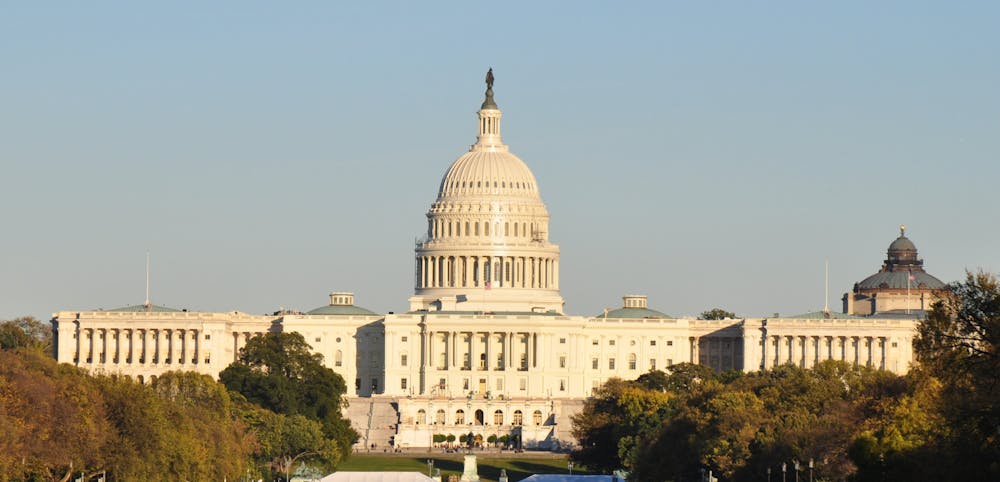Connor Carlin
Staff Writer
Fast-tracking a key piece of legislation in President Biden’s agenda, House Democrats have proposed a series of tax hikes on the wealthy and corporations to fund the $3.5 trillion infrastructure spending bill currently making its way through Congress.
Congressman Richard Neal (D-MA), chairman of the tax-writing Ways & Means Committee, outlined the Democrats’ tax plan in an 18-page summary of proposed changes, estimated to generate upwards of $2 trillion in revenue for the infrastructure bill. The plan raises top corporate tax rates to 26.5 percent, up from the current 21 percent.
Moreover, Neal is seeking to change the current flat corporate tax rate to one with rates of 18 percent on income above $400,000, 21 percent up to $5 million, and the aforementioned 26.5 percent beyond that bracket. The top marginal individual tax rate also sees an increase in Neal’s plan from 37 to 39.6 percent on income of individuals above $400,000 and $450,000 for married individuals. The threshold of $400,000 is in line with President Biden’s previous promise not to raise taxes on those making below that amount.
Neal’s plan seeks to reverse several provisions of the 2017 Republican tax cuts, which slashed the corporate tax rate from 35 percent to its current 21 percent. On top of the individual tax increase, Neal’s proposals include a 3 percent surcharge on individual income above $5 million and raising the capital gains tax, levied on the profits of an investment when said investment is sold, to 25 percent. Furthermore, Neal is also seeking higher taxes on overseas multinational corporate profits and more limits on huge individual retirement accounts. The plan, however, does not go as far as President Biden would hope, himself having proposed a 28 percent corporate tax and 39.6 percent capital gains tax.
If passed, Neal’s proposals would represent the largest tax increase in decades to fund a massive domestic policy bill key to President Biden’s “Build Back Better” agenda, something AP News has described as being “on par with the Great Society and the New Deal.” The House tax plan is designed not only to shore up funds for the infrastructure bill, but also to speed up tax negotiations with the Senate on what increases to add or subtract, so as to get together a final draft of the bill.
Republican legislators have uniformly opposed the infrastructure bill and have opposed the tax increases for how they reverse the 2017 Republican tax cuts. There aren’t any Republicans expected to vote for the tax plan. However, they have largely been cut out of the negotiations, with Democrats utilizing a process known as reconciliation to only need 50 votes to pass the plan. The real struggle will come from within their own party. Democratic margins are close in both chambers, particularly in the Senate, where a 50-50 split with Vice President Kamala Harris being a tie-breaker, leaves them incapable of losing any votes.
Senator Joe Manchin (D-WV), who has become a powerful moderate swing vote in the Biden Era, has been open in his opposition to the steep $3.5 trillion price tag of the infrastructure bill, saying that he wants around $1 trillion cut to support it. In response to Neal’s proposals, Manchin has endorsed smaller tax hikes, such as a 25 percent capital gains tax over Neal’s 26.5 percent rate.
Another stumbling block for the tax increases comes from moderate Democrats representing high-tax states such as California, New York and New Jersey who are seeking repeal of the $10,000 cap on deductions for state and local taxes, also known as SALT deductions, imposed by the former President Trump’s 2017 Tax Cuts and Jobs Act. These Democrats, which include Representatives Mikie Sherrill (D-NJ), Josh Gottheimer (D-NJ) and Thomas Suozzi (D-NY), have made their support for the tax increases contingent on the SALT cap repeal. Congressman Neal has reassured these legislators that their demands will be heard. Progressives such as Representative Alexandria Ocasio-Cortez (D-NY) have objected to this proposal as disproportionately benefiting the wealthy, and that while there is room for negotiation, an outright repeal is excessive.
Neal has been in closed-door meetings with legislators attempting to meet the deadline set by House Speaker Nancy Pelosi (D-CA) and Senate Majority Leader Chuck Schumer (D-NY) of this week to draft the infrastructure bill. The House tax plan is sure to aid in speeding up these negotiations, though it is yet to be seen whether Democrats will be able to meet Speaker Pelosi’s October 1 deadline for a House vote.







